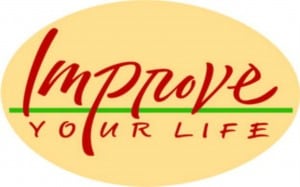 If you have an aging or aged parent, you no doubt have had discussions surrounding living wills, end of life medical decisions and funerals. However, there is one topic that many families consider taboo – money – because many adult children consider it disrespectful to discuss finances with their parents. But, the truth is that many seniors in Canada are struggling. We began this discussion in our Blog “Grey Divorce Can Create Serious Debt For Boomer Retirees” but serious debt is not the exclusive domain of seniors that are divorced; it is rampant across the demographic. It may shock you to know that Canadians over the age of 65 now have the highest insolvency and bankruptcy rates for their age group and seniors were 17 times more likely to become insolvent in 2010 than they were 20 years ago, according to the Vanier Institute’s 13th annual “Current State of Canadian Family Finances: 2011—2012 Report.” Can you bankrupt a dead person? Can you bankrupt a dead person? Find out here in what we call “Death of a Debtor”.
If you have an aging or aged parent, you no doubt have had discussions surrounding living wills, end of life medical decisions and funerals. However, there is one topic that many families consider taboo – money – because many adult children consider it disrespectful to discuss finances with their parents. But, the truth is that many seniors in Canada are struggling. We began this discussion in our Blog “Grey Divorce Can Create Serious Debt For Boomer Retirees” but serious debt is not the exclusive domain of seniors that are divorced; it is rampant across the demographic. It may shock you to know that Canadians over the age of 65 now have the highest insolvency and bankruptcy rates for their age group and seniors were 17 times more likely to become insolvent in 2010 than they were 20 years ago, according to the Vanier Institute’s 13th annual “Current State of Canadian Family Finances: 2011—2012 Report.” Can you bankrupt a dead person? Can you bankrupt a dead person? Find out here in what we call “Death of a Debtor”.
A TD Bank study revealed that:
- Debt among the 65 plus age group increased 15% in 2012
- The average debt for those 65 and older increased by about $6,000 since 2011
- Average debt among this group is $47,500
A CIBC study revealed that:
- 59% of retired Canadians currently hold some form of debt
- Only 27% of retired Canadians said they have made an extra lump sum payment towards their debt in the past 12 months
- On average, retired Canadians carry 1.65 debt products with a balance (including mortgages, lines of credit, loans and credit cards)
What will happen if your parent(s) pass away in debt? You really have only 2 options?
- Pay the debts
- Let the estate go bankrupt
We recognize that this is an emotionally charged issue, but just because your parents were insolvent doesn’t mean that you have to be. Starting Over, Starting Now you can live a debt free life with help from Ira Smith Trustee & Receiver Inc. Contact us today and watch for our next blog – Is It The Ultimate Indignity To Bankrupt A Deceased Person? Part 2 – when we’ll be discussing what you can do if your parent(s) pass away in debt.


